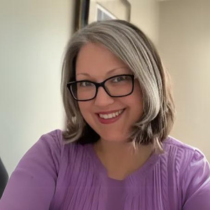Family caregiving is a challenging, often overwhelming role that many people tackle, often without formal training or adequate support. The journey can be emotionally, physically, and mentally demanding for those stepping into the caregiver role. To shed more light on the unique challenges and solutions for caregivers, we got in touch with Katie Kristofic, the founder of The Carefullist, a platform dedicated to guiding caregivers through the complex world of caregiving. Her insights reveal the importance of support networks, adaptability, and a compassionate approach to caregiving.
It’s so difficult when you’re first starting out as a caregiver. It’s like you’re living on a different planet. Don’t assume your journey will be the same as other people you know. Every case is different, and every outcome is different. The biggest mistake I see people make is that they isolate themselves. They don’t talk about what they’re going through and the support they need. They wait until they’re completely underwater. Communicate openly and frequently with your support network. CaringBridge is a great resource for this- and it’s free. If you don’t have a support network, start with your local Area Agencies on Aging chapter.
It’s two-fold. Flexibility and empathy. Life is different for a while. Being flexible with your schedule and expectations goes a long way. Empathy for your loved one and yourself gives you room to process and deal with this major life change.
– Katie Kristofic
Caregiving is exhausting, and it’s easy to let friendships go by the wayside. Not because you want them to, but because you’re tired and don’t feel like talking. Perhaps you don’t think people will understand, or you’re afraid they’ll judge you. Try to let at least one person see the good, bad, and ugly of what’s going on. It helps tremendously. If you don’t have someone, caregiving podcasts are a great way to be “around” people who get what you’re going through. They can help you figure out how to talk to people about your caregiving journey.
There are two major challenges right now that need to be resolved. The communication gap between the medical community and the general population is the first. Family caregivers are expected to manage and understand an unrealistic amount of information if their career has been in anything other than healthcare. A few sheets of paper and rapid-fire instructions on your way out of the hospital aren’t good enough.
The second lies with employers. People need flexibility and support from their employers when they become caregivers. Employers must offer benefits that cover the help employees need to remain in the workforce and know their loved ones are cared for properly while working. Most Americans cannot afford this type of care on their own. An employer benefit would help tremendously in the absence of legislation.
As Katie mentioned, caregiving is a challenging journey that requires support, adaptability, and empathy. Her insights underscore the importance of building a support network, staying flexible, and advocating for changes that make caregiving more manageable. By addressing communication gaps and the need for workplace support, we can create a more sustainable, compassionate environment for caregivers and those they care for.

Katie Kristofic, founder of The Carefullist, discovered her love for storytelling early, inspired by seeing her second-grade story published in a local newspaper. Years later, she draws on both personal and professional experiences to build *The Carefullist*, a platform offering vetted resources for family and home caregivers. As a first-time entrepreneur but a startup veteran, Katie invites caregivers and their supporters to connect, share, and empower each other.